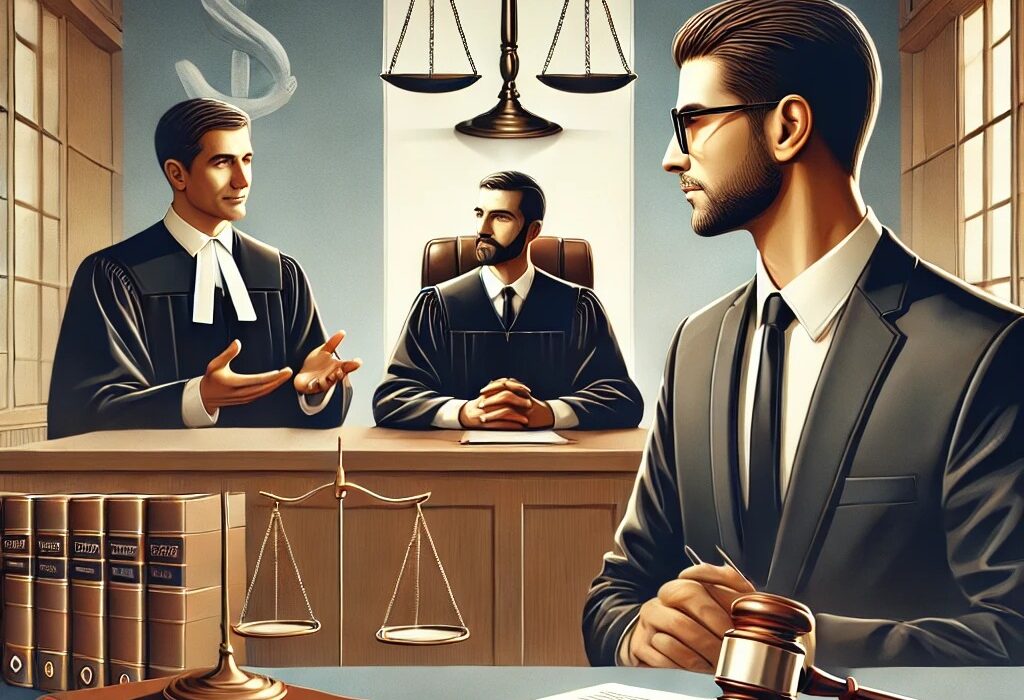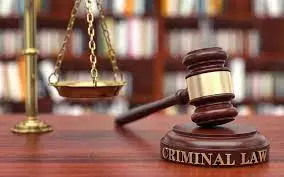Introduction
Navigating the complexities of criminal law can be a daunting and overwhelming experience, especially if you’re facing criminal charges. A skilled lawyer specializing in criminal offenses can provide the guidance, defense, and support needed to protect your rights and secure the best possible outcome. This article delves into the role of criminal lawyers, their importance, and the various aspects of criminal law they handle, offering a comprehensive guide for individuals seeking clarity and assistance.
The Role of a Lawyer for Criminal Offenses
A lawyer for criminal offenses is a legal professional who specializes in defending individuals accused of criminal activities. Their primary role is to ensure that their clients receive a fair trial and that their rights are upheld throughout the legal process. These lawyers analyze the charges, gather evidence, interview witnesses, and build a strong defense strategy tailored to the client’s case.
Whether it’s a misdemeanor or a serious felony, criminal lawyers have an in-depth understanding of legal procedures and statutes. They guide clients through each stage of the legal system, from the initial investigation and arrest to court proceedings and appeals if necessary. By leveraging their expertise, they aim to mitigate penalties, negotiate plea deals, or even have charges dropped when possible.
Common Types of Criminal Offenses
Criminal law covers a broad spectrum of offenses, each with its own unique implications. Some of the most common types of criminal offenses include:
- Theft and Burglary: Crimes involving the unauthorized taking of another person’s property.
- Assault and Battery: Acts of physical harm or threats of violence against another individual.
- Drug-Related Offenses: Charges such as possession, distribution, or manufacturing of illegal substances.
- Driving Under the Influence (DUI): Operating a vehicle while impaired by alcohol or drugs.
- White-Collar Crimes: Financially motivated crimes like fraud, embezzlement, and insider trading.
- Homicide and Manslaughter: Serious offenses involving the unlawful killing of another person.
Each type of offense requires a different defense approach, emphasizing the need for specialized legal expertise.
Why You Need a Criminal Lawyer
Hiring a criminal lawyer is crucial, as they possess the knowledge and skills necessary to navigate the intricate legal system. Here are key reasons why you need a criminal lawyer:
- Understanding of Legal Procedures: Lawyers are familiar with court rules, protocols, and paperwork, ensuring no critical details are overlooked.
- Strategic Defense: They craft personalized defense strategies based on the specifics of your case, increasing your chances of a favorable outcome.
- Negotiation Skills: Lawyers can negotiate with prosecutors to reduce charges or secure lenient sentencing.
- Emotional Support: Facing criminal charges can be stressful; a lawyer provides guidance and reassurance during a challenging time.
Without professional legal representation, individuals risk severe penalties and may unknowingly compromise their rights.
How a Criminal Offense Lawyer Builds Your Defense
A criminal offense lawyer plays a pivotal role in developing a robust defense to challenge the charges against you. The defense process typically involves several key steps:
- Case Evaluation: The lawyer reviews the facts, evidence, and circumstances surrounding the case to identify strengths and weaknesses.
- Evidence Collection: They gather and examine evidence, including police reports, witness statements, and surveillance footage, to build a solid case.
- Legal Research: A criminal lawyer investigates relevant laws, precedents, and legal arguments that can be used in your defense.
- Pre-Trial Motions: Lawyers may file motions to suppress evidence obtained unlawfully or dismiss charges due to procedural errors.
- Court Representation: If the case goes to trial, the lawyer presents arguments, cross-examines witnesses, and challenges the prosecution’s evidence to advocate for your innocence.
Every step is critical in ensuring the defense strategy aligns with the client’s best interests.
The Consequences of a Criminal Conviction
A criminal conviction can have far-reaching consequences beyond legal penalties. These include:
- Legal Penalties: Fines, probation, community service, or imprisonment.
- Employment Challenges: A criminal record can make it difficult to secure jobs, especially in sensitive industries.
- Reputation Damage: Personal and professional relationships may be strained due to the stigma associated with a criminal conviction.
- Restricted Opportunities: Convictions may limit housing options, educational opportunities, and eligibility for certain licenses.
- Immigration Issues: For non-citizens, criminal convictions can lead to deportation or visa denials.
Understanding these potential outcomes underscores the importance of seeking legal assistance to avoid or minimize these repercussions.
Tips for Choosing the Right Criminal Lawyer
Selecting the right criminal lawyer can make a significant difference in the outcome of your case. Here are some tips to guide your decision:
- Experience: Look for a lawyer with extensive experience handling cases similar to yours.
- Specialization: Ensure the lawyer specializes in criminal law rather than general practice.
- Reputation: Check reviews, testimonials, and references to assess the lawyer’s track record and client satisfaction.
- Communication Skills: Choose a lawyer who listens to your concerns, answers your questions, and keeps you informed throughout the process.
- Availability: A lawyer who is accessible and responsive can provide timely support when needed.
By thoroughly researching and consulting with potential lawyers, you can make an informed decision that suits your legal needs.
Conclusion
Navigating the criminal justice system requires expertise, strategy, and unwavering support. A skilled lawyer specializing in criminal offenses can be an invaluable ally, ensuring your rights are protected and advocating for the best possible outcome. Whether you’re facing a minor misdemeanor or a severe felony, securing professional legal representation is essential for preserving your future and minimizing the impact of criminal charges. Understanding the role of criminal lawyers, the types of offenses they handle, and how they build defenses empowers individuals to make informed decisions and seek the justice they deserve.






